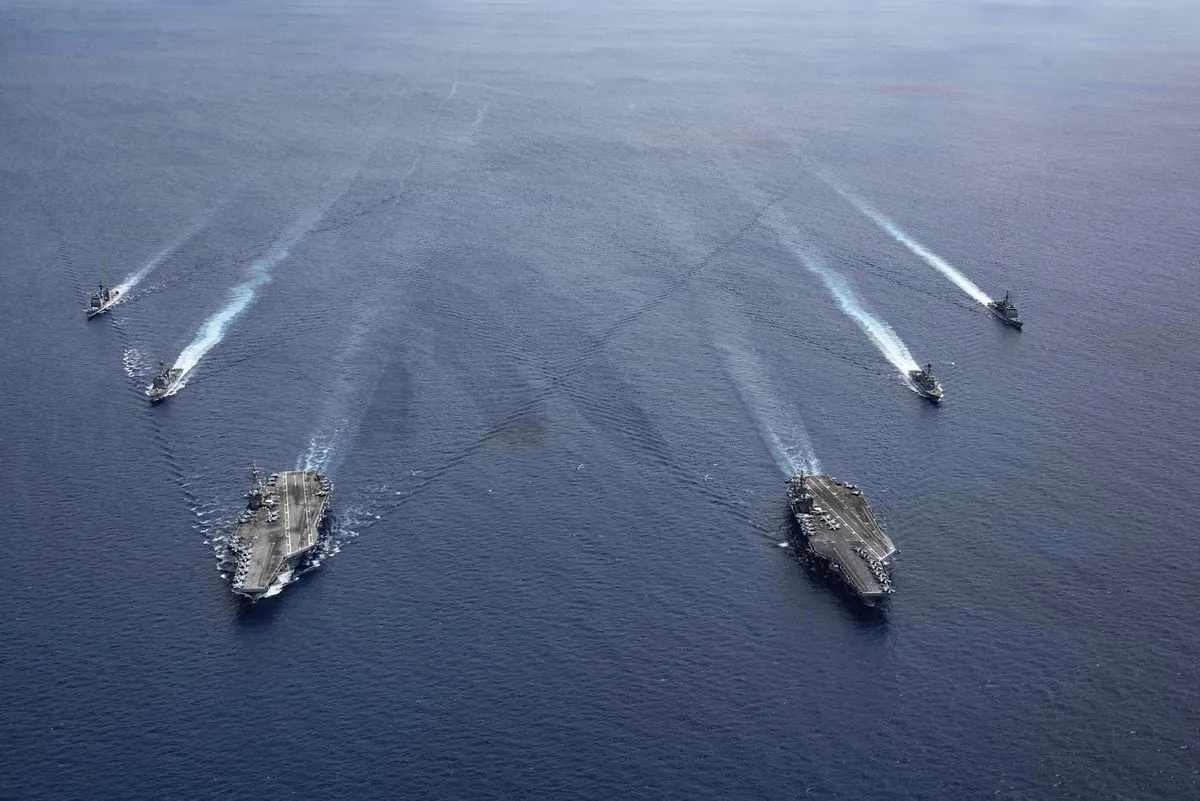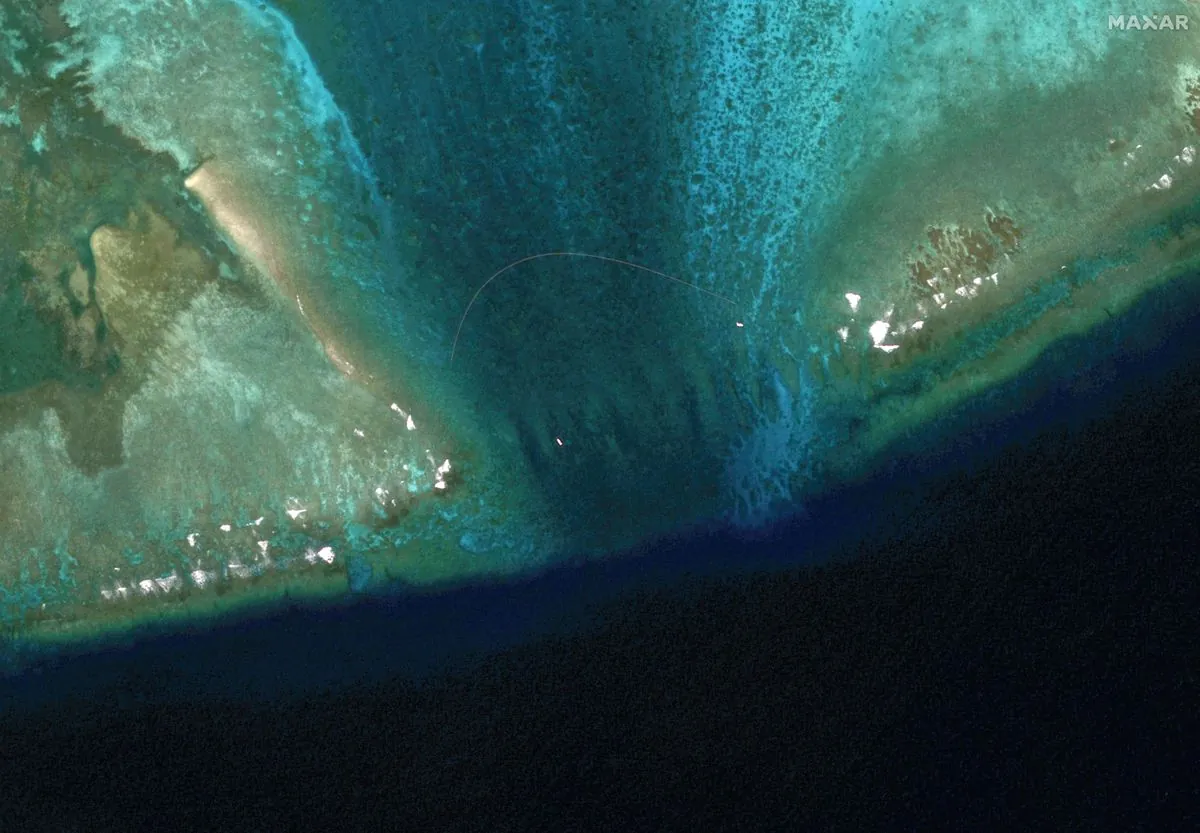Philippines to Protest China's 'Provocative' Actions in South China Sea
Philippines plans diplomatic protest over Chinese aircraft incident near Scarborough Shoal. Officials condemn China's actions as illegal, vowing to continue maritime patrols despite tensions.

Approximately one year ago, on August 8, 2023, a tense incident occurred in the airspace over the Scarborough Shoal in the South China Sea, prompting the Philippines to announce plans for a diplomatic protest against China. The event, which involved Chinese aircraft dropping flares in the path of a Philippine Air Force plane during a routine patrol, has escalated tensions in the region.
Enrique Manalo, the Philippine Foreign Secretary, confirmed the intention to file a diplomatic protest in response to what officials describe as "dangerous and provocative" actions by China's Air Force. Despite the incident, military chief Romeo Brawner affirmed that the Philippines would continue its maritime patrols in the South China Sea.
The South China Sea, one of the world's busiest shipping lanes, has been a focal point of territorial disputes for years. China claims almost the entire area under its "nine-dash line" policy, which was first officially published in 1947. However, this claim overlaps with the territorial assertions of several Southeast Asian nations, including the Philippines.
Defence Secretary Gilberto Teodoro expressed hope for China's compliance with international law and emphasized the need for de-escalation. Philippine President Ferdinand Marcos characterized China's actions as "unjustified, illegal, and reckless," highlighting the gravity of the situation from Manila's perspective.
It's worth noting that the Philippines won an arbitration case against China's claims in 2016 at the Permanent Court of Arbitration in The Hague. This ruling was based on the United Nations Convention on the Law of the Sea (UNCLOS), which governs maritime disputes. Despite this legal victory, tensions in the region have persisted.

The Scarborough Shoal, located approximately 124 nautical miles from the Philippines, is rich in fishing resources and lies within an area believed to contain significant oil and gas reserves. This economic potential adds to the strategic importance of the disputed territory.
"The Philippine aircraft had illegally intruded despite repeated warnings."
This statement from China contrasts sharply with the Philippine perspective, illustrating the ongoing disagreement over territorial rights and air space control in the region.
The incident is part of a broader pattern of tensions in the South China Sea. Since 2013, China has been constructing artificial islands in the area, further complicating the geopolitical landscape. In response to such activities, the United States has conducted "freedom of navigation" operations to challenge what it sees as excessive maritime claims.
As the situation develops, the international community watches closely. The Association of Southeast Asian Nations (ASEAN) has been working on a Code of Conduct for the South China Sea, aiming to manage potential conflicts and promote stability in the region. However, progress on this front has been slow, and incidents like the recent flare-dropping event underscore the challenges in achieving a lasting resolution to the South China Sea dispute.


































